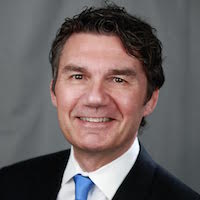Germany: From Villain to Exemplar
The power of history and the effort of preventing the European Dream from turning into European Nightmare.
September 15, 2015
Over the course of the past few months, Germany has been described, often by the same people, first as a villain (in the eurozone crisis) and now as an exemplar (in the refugee crisis). How to explain such a seemingly fundamental contradiction?
The answer is simple: History. Germany’s current top political leaders were largely born about ten years after the end of World War II. As such, their hearts and mindsets were defined by the atrocities committed by their forefathers during the Third Reich.
As an inevitable consequence, many of those post-World War II Germans suffered from serious identity crises. They were Germans by birth, but they most definitely were not proud of their roots.
They sought refuge in a bigger and better world. It was hence only logical that they became the most outspoken co-creators of the European Dream.
How later generations looked at Germany
But how does this influence their behavior today, 70 years after the end of World War II? And how does it make them villains and paragons?
Well, many of those who governed Germany, whether in the immediate post-war era or today, looked at the roots of fascism in Germany and concluded that economic instability was a pivotal factor in bringing Hitler to power. This is indeed partially correct.
Many Germans, also in the population at large, identify economic instability with fiscal profligacy (incurring large public debts) and hyper-inflation.
The images of 1923, when Germans pushed wheelbarrows loaded with cash to buy a loaf of bread, are still ingrained in their collective minds.
What they don’t acknowledge – or don’t realize — is that it was not fiscal profligacy and hyper-inflation of the early 1920s, but fiscal austerity and the resulting depression of the late 1920s and early 1930s that facilitated Hitler’s rise. Evidently, the wheelbarrow is just too powerful an image.
The “villain” image
It was hence no surprise that Germans were such stern taskmasters throughout the eurozone crisis. The German government seemed unforgiving, heartless and uncompromising toward those who had committed the “sin” of fiscal imprudence.
But in the minds of German leadership and the German people, all they were doing was to save the European Dream. They never perceived themselves as potential “villains,” even when many within the eurozone unjustly did.
But then something even more surprising happened. As the civil wars in Afghanistan, Iraq and Syria intensified, hundreds of thousands of people fled their homelands and arrived at the shores of Italy and Greece and through neighboring countries in Hungary.
 Enlarge Enlarge
Enlarge Enlarge
There was – and is – a lot of understandable confusion in the European Union. Not since the end of World War II has there been such a massive migration of people.
The reaction of countries in the EU to this overwhelming challenge differed greatly. Hungary built a fence. Bulgaria, Slovakia, the Czech Republic, Estonia and Cyprus stated that they prefer only Christian refugees.
Poland’s Deputy Prime Minister, Tomasz Siemoniak, said “Germans should not teach us about solidarity,” while “generously” extending the country’s hand to a mind-boggling 2,200 refugees over the next two years.
Meanwhile, the United Kingdom has offered refuge to 25,000 asylum seekers – literally a drop in the bucket.
The Exemplar
And Germany’s reaction? The German government expects to take in 800,000 refugees in 2015 alone, almost 1% of the country’s present population.
Why? Once again: History. The land of the Holocaust will do its utmost to right those past wrongs.
And thus, the poem by Emma Lazarus, which is engraved in a plaque at the Statue of Liberty, might just as well also adorn the Brandenburg Gate now: “Give me your tired, your poor, your huddled masses yearning to breathe free, the wretched refuse of your teeming shore. Send these, the homeless, tempest-tost to me, I lift my lamp beside the golden door!”
By and large, German reception of the tired, poor and huddled masses has set an example for humanity.
 Enlarge Enlarge
Enlarge Enlarge
And so it is that German history has made today’s Germany both villain and exemplar in the eyes of the world at the same time. All the while, Germans are trying to save their European Dream from turning into a European Nightmare.


